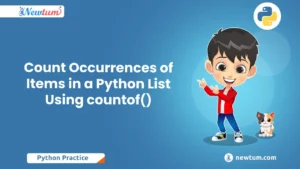PHP is a flexible and powerful programming language, and its variable handling is one of the most fascinating aspects. If you’re diving into PHP, understanding PHP $ and $$ Variables can be a game-changer for writing dynamic and efficient code. In this blog, we’ll break down the concept of **$** and ** variables, their usage, and practical examples to help you master them.
What Are PHP $ Variables?
In PHP, a $ variable is a standard way to define and store data. It holds a value that can be of any data type, such as integers, strings, arrays, or objects.
Syntax of $ Variables
$variable_name = value;- $ is the prefix used for all variables in PHP.
- The variable_name must start with a letter or an underscore (_), followed by letters, numbers, or underscores.
Example
$name = "John"; // A string variable
$age = 25; // An integer variable
echo "Name: $name, Age: $age";
What Are PHP $$ Variables?
A $$ variable, also known as a variable variable, allows you to create dynamic variable names. The value of one variable is used as the name of another variable.
Syntax of $$ Variables
$$variable_name = value;- $variable_name contains the name of another variable.
- The $$variable_name dynamically creates or references a variable with the name stored in $variable_name.
Example
$name = "student";
$$name = "Alice";
echo $student; // Outputs: AliceHere’s how it works:
$$name creates a new variable named $student and assigns it the value "Alice".
$name stores the string "student".
Key Difference Between $ and $$ Variables
| Aspect | $ Variable | $$ Variable |
|---|---|---|
| Definition | A regular variable used to store data. | A variable whose name is dynamically generated. |
| Syntax | $variable = value; | $$variable = value; |
| Functionality | Directly stores or accesses values. | Indirectly references or creates variables. |
| Example | $name = "John"; | $var = "name"; $$var = "John"; |
| Use Case | Storing simple data. | Creating dynamic variable names for flexible data handling. |
Use Cases of $$ Variables
1. Dynamic Data Storage
When you need to dynamically create variables based on input or database fields, $$ variables come in handy.
Example:
$field = "username";
$$field = "JohnDoe";
echo $username; // Outputs: JohnDoe
Explanation:
$fieldholds the string"username".$$fieldcreates a new variable with the name$usernameand assigns it the value"JohnDoe".- This approach is useful when you need variable names to adapt dynamically based on the program’s input.
2. Looping Through Variables
In scenarios where multiple variables need to be created dynamically, loops combined with $$ variables make the task more efficient.
Example:
$base = "var";
for ($i = 1; $i <= 3; $i++) {
${$base . $i} = $i * 10;
}
echo $var1; // Outputs: 10
echo $var2; // Outputs: 20
echo $var3; // Outputs: 30
Explanation:
$baseholds the string"var".${$base . $i}dynamically creates variables$var1,$var2, and$var3.- The loop assigns values to each variable, making this approach efficient for scenarios like creating variable sets for configuration or data storage.
These use cases demonstrate the power of $$ variables in building dynamic and adaptable PHP applications. They save time and reduce redundancy when handling dynamic data.
Real-Life Uses of PHP $ and $$ Variables
Let’s dive into some practical use cases for PHP $ and $$ Variables to make these concepts more relatable for you. Here’s how they can be applied in real-life coding scenarios:
- Dynamic Form Field Names: Imagine a scenario where you’re creating a dynamic form with varying input fields based on user selection. Here, `$` helps define the field name, while `$$` is useful to store the corresponding value because it allows the field name to change dynamically according to user input. For instance, if a user chooses a specific option, a new field with a unique name can be generated, saving you from hardcoding values.
- Configuration Management: Maintaining different configuration settings for different environments (like development, staging, and production) can be streamlined using PHP $$ Variables. By dynamically assigning configuration parameters with `$$`, you can load environment-specific settings seamlessly without the need for repetitive code blocks.
- Customizable Template Rendering: In complex web applications, different templates might be required based on user roles or preferences. Here, `$` defines the base template, while `$$` determines which template should actually be rendered. This application optimizes code management, making it easier to swap or update templates with minimal effort.
- Data Processing with Variable Data Sets: Suppose you’re dealing with data sets that frequently change in structure. Dynamic variable names offer a flexible way to access data points without knowing their exact labels beforehand, making your code more adaptable to data variations.
Incorporating PHP $ and $$ Variables in these scenarios can significantly enhance code efficiency and adaptability, offering practical solutions for everyday programming challenges.
Common Interview Questions on PHP $ and $$ Variables
- What is a $ variable in PHP?
It’s a standard variable used to store data such as strings, numbers, or arrays. - How does a $$ variable work in PHP?
It’s often called a “variable variable” and allows the name of another variable to be dynamically referenced. - Can you give an example of using $$ in PHP?
Yes, if $var = ‘hello’ and $$var = ‘world’, then $hello will store ‘world’. - What’s a common use case for $$ variables?
They’re used when you need variable names to be dynamic, such as in loops or complex data structures.
What are the pitfalls of using $$ variables?
They can make code harder to read and debug since variable names aren’t clear and can be unpredictable.
In conclusion, understanding PHP $ and $$ Variables can elevate your coding skills by giving you dynamic data handling capabilities, but it’s crucial to use them judiciously to maintain code clarity.
Why just read when you can practice? With our PHP online compiler, you can instantly write, run, and test your code with AI assisting every step of the way. Dive into the exciting world of PHP now!
Conclusion
Understanding PHP $ and $$ Variables can open up new possibilities for dynamic programming and developing smarter solutions. For more in-depth learning, visit Newtum. Dive deeper into coding and turn your ideas into reality! Keep coding and explore more!
Edited and Compiled by
This blog was compiled and edited by Rasika Deshpande, who has over 4 years of experience in content creation. She’s passionate about helping beginners understand technical topics in a more interactive way.



